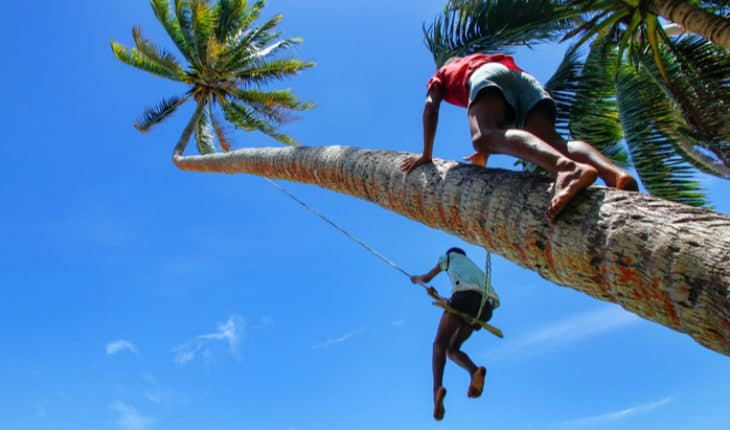Leading a worldwide effort to better prevent and treat scabies: The Murdoch Children’s Research Institute (MCRI) and its partners are leading a global program to better prevent and treat scabies – the human parasite linked to severe skin infections, blood poisoning, kidney failure and heart disease.
The World Scabies Program (WSP) was established in 2019 thanks to an AU$10 million grant from the Macquarie Group’s 50th anniversary philanthropic commitment to address social need.

World scabies Program
The program aims to equip low- and middle-income countries around the world with the tools and the resources to detect, monitor and control scabies in affected communities.
Professor Andrew Steer said the tiny mite affected hundreds of millions of people, but it was possible to have a massive impact by treating whole populations.
In 2015, an entire community in a MCRI-led trial in Fiji was given the antiparasitic ivermectin. One year after the mass administration, the scabies prevalence declined by 94 per cent.
Since then, research by MCRI, conducted in partnership with the Kirby Institute at UNSW Sydney and the health ministries of Fiji and the Solomon Islands, has proven that the number of people with scabies in a community can be reduced by more than 90 per cent with community-wide treatment with ivermectin.
Ivermectin has been shown to be safe and can be feasibly delivered by community health care workers.
“Scabies is a disease of over-crowding. People in low-income, crowded, and tropical environments with inadequate access to health services are most prone to infestation,” Professor Steer said. “Children are particularly vulnerable.”
Fiji Ministry of Health Dr Mike Kama said children often pick up mites from their friends.
“[They] scratch all night, interrupting their sleep, and struggle to concentrate in class during the day,” he said
“The scratching often leads to a bacterial infection called impetigo, so children have to stay away until they clear up, and they miss out on more school.”
The World Scabies Program is working with Ministries of Health to treat 1.5 million people – the entire populations of Fiji and the Solomon Islands, which are among the world’s most affected countries.
WSP aims to control this highly contagious, debilitating disease in both countries to positively impact the quality of life for millions of people.
- New lipid-based pathway discovered as key to memory formation - 25th June 2025
- Crucial link could explain how Alzheimer’s takes hold - 25th June 2025
- Understanding Your Mind Can Improve Daily Life - 25th June 2025







